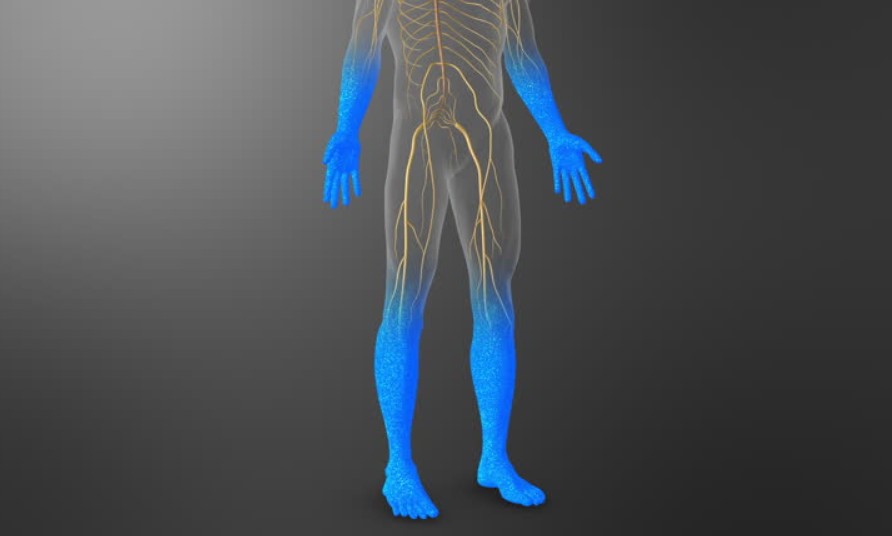Health
Neuropathy as an SSDI Condition: When You Qualify

Neuropathy can qualify as a disability if it meets the criteria established by the Social Security Administration (SSA). For neuropathy to be recognized as a disability under Social Security Disability Insurance (SSDI), it must significantly impair motor function in at least two body parts, such as your arms or legs. Alternatively, it may qualify if it causes considerable limitations in areas such as memory, concentration, social interaction, or self-management.
This indicates that having neuropathy alone is insufficient. The SSA evaluates how the condition impacts your ability to work and carry out daily activities. They apply strict standards and require medical evidence to determine qualification.
In other words, neuropathy can be a qualifying condition for SSDI benefits if the symptoms are severe enough and documented in the right way. The SSA uses these standards to separate mild cases from those that truly stop a person from holding a job.
What is Neuropathy?
Neuropathy refers to damage to the nerves, which function like the body’s wiring system. They transmit messages from the brain and spinal cord to the rest of the body and carry information back again. When these nerves are damaged, the transmission of messages is disrupted.
The most common type is called peripheral neuropathy. This affects the nerves outside of the brain and spinal cord. Some people develop neuropathy from diabetes, injuries, infections, or certain medications. In many cases, the condition worsens over time.
Neuropathy can affect three groups of nerves:
- Motor nerves, which control muscle movement.
- Sensory nerves, which send signals regarding pain, temperature, and touch.
- Autonomic nerves, which handle automatic body functions like digestion and heartbeat.
Depending on which nerves are damaged, symptoms can vary.
Symptoms Matter Most to the SSA
The SSA, the government agency that administers programs like retirement benefits, Supplemental Security Income (SSI), and Social Security Disability Insurance (SSDI), only considers neuropathy to be disabling if it causes significant limitations.
The Social Security Administration (SSA) considers both physical and mental symptoms when evaluating disability. Some of the most important symptoms include:
- Inability to stand up from a chair without help
- Loss of balance when standing or walking
- Loss of function in the arms and hands that prevents normal work
- Not being able to focus long enough to finish work
- Having difficulty controlling emotions or behavior
- Struggling to interact with coworkers, supervisors, or the public
How the SSA Decides If Neuropathy Qualifies
The SSA uses a medical guide known as the Blue Book. Neuropathy is present in section 11.14, which covers neurological disorders.
There are two main ways to qualify:
- You must demonstrate disorganized motor function in both arms and legs, resulting in significant limitations in balance, standing, or hand usage.
- Alternatively, you must exhibit marked limitations in mental or social functioning along with physical impairments.
If you meet one of these categories and have solid medical evidence, you can qualify.
Furthermore, for SSDI, you must show that neuropathy has prevented you from working for at least 12 months or that it is expected to last that long. Short-term problems do not qualify. This rule exists because SSDI is for long-term or permanent disabilities, not temporary health setbacks.
Medical Evidence You Need to Qualify
You cannot qualify just by saying you have neuropathy. A doctor’s diagnosis is required, and it must be supported with medical records. The SSA wants to see a full picture of your symptoms, the progression of your condition, and the results of tests.
Important diagnostic evidence includes:
- Nerve biopsy to study nerve damage.
- Nerve conduction tests and electromyography (EMG) are used to measure muscle and nerve activity.
- Autonomic testing, such as blood pressure and heart rate checks.
- Sensory testing to measure nerve endings.
- Imaging tests like MRIs or CT scans to rule out other causes.
The records should not just show test results but also document how the symptoms affect daily activities like standing, walking, and using your hands.
Key takeaways
- Neuropathy can qualify for SSDI if it causes severe motor or mental limitations.
- The SSA Blue Book section 11.14 outlines the requirements.
- Medical evidence must include test results, diagnoses, and treatment records.
- Non-medical evidence from family, coworkers, or teachers can help.
- Symptoms must last at least 12 months.
-

 Entertainment4 weeks ago
Entertainment4 weeks ago123Movies Alternatives: 13 Best Streaming Sites in 2026
-

 Entertainment1 month ago
Entertainment1 month ago13 Free FMovies Alternatives to Watch Movies Online in 2026
-

 Entertainment4 weeks ago
Entertainment4 weeks ago13 Flixtor Alternatives to Stream Free Movies [2026]
-

 Entertainment1 month ago
Entertainment1 month agoGoMovies is Down? Here are the 11 Best Alternatives




